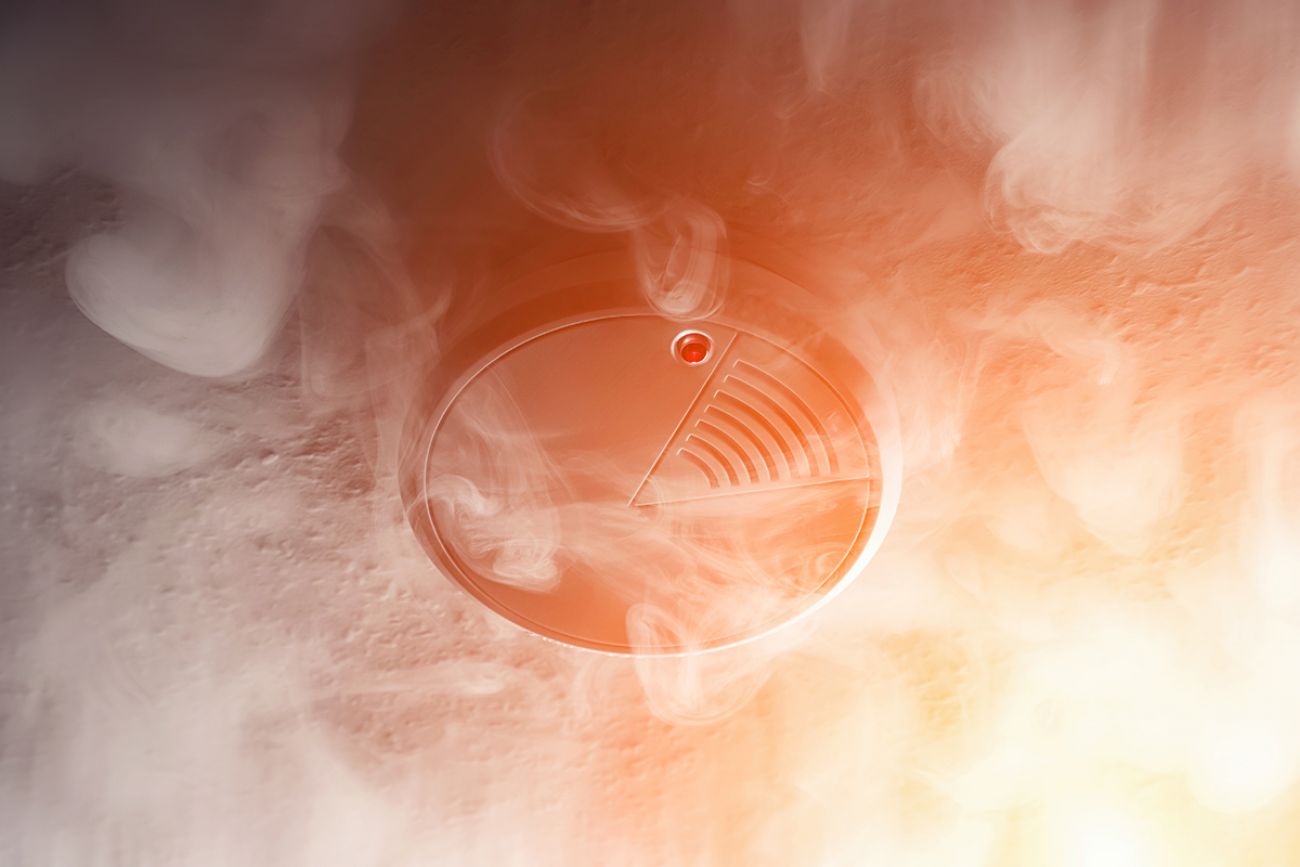Michigan fire deaths are climbing. One factor: non-working smoke alarms

Three people in Detroit and another in Monroe County have all died in residential fires since Sunday, part of a 18 percent uptick in fire deaths so far this year compared to a five-year average of the first six months of the year between 2017 and 2021.
Contributing factors to many of those deaths: non-working smoke alarms and a lack of planned escape routes.
That’s frustrating to fire officials, who say some of those deaths could have been prevented with simple steps like assuring that smoke alarms are working.
Related: After downtown Holly fire, community stands vigil in their historic city
“One fire fatality is too many,” State Fire Marshal Kevin Sehlmeyer told Bridge Michigan. “Michigan is one of the top ten for population in the United States. I don't think it would surprise anybody that we’re the top ten [in] fire fatalities also.”
According to 2019 data, Michiganders had a higher chance of dying by fire than the U.S. average. The relative risk for those in Michigan was 10 percent higher than the general population.
Since the beginning of 2022, there have been 61 residential fires in Michigan that led to at least one fatality; 75 people have died through June 22. Smoking has been the top cause of those fires, and most fires have started in the living room of a house.
Most of the fires have been concentrated in Wayne, Macomb and Oakland counties and the Upper Peninsula, according to data from the fire marshal's office.
Kyle Svoboda, district chief at Plainfield Fire Department and immediate past president of the Michigan Fire Inspectors Society, said the MI Prevention program, established in 2017, has improved data collection and tracking in real-time about where and how many fires are occurring around the state.
“We know that we're collecting 100 percent of the information,” Svoboda said. “We're seeing it in real-time to get those trends. And that's something that's unique to the state of Michigan.”
That quick-turn data collection has helped fire officials identify contributing factors to fire deaths that can in turn lead to educational efforts to improve safety.
Kymberly Pashkowsky, the MI Prevention Program coordinator, said the two main issues the program is focused on tackling are people not having working smoke alarms and people not being aware of the escape routes in their homes.
One demographic the program has targeted, specifically regarding planning escape routes, has been the elderly, who tend to have more disability and mobility concerns according to Pashkowsky. About 27 percent of victims of deadly fires in the state this year have been those with some form of disability.
Sehlmeyer also noted that about two-thirds of Michigan homes where there have been fires this year did not have working smoke alarms.
He said that along with education campaigns, the MI Prevention program has allowed fire departments to go out in the community and replace and install smoke alarms in homes.
“We're trying to reduce fire fatalities statewide by understanding that each community has different needs,” Sehlmeyer said. “[In] each community these fires are occurring in potentially different ways. So what we're really trying to do is we're trying to work with them, so that they can take care of their own communities.”
See what new members are saying about why they donated to Bridge Michigan:
- “In order for this information to be accurate and unbiased it must be underwritten by its readers, not by special interests.” - Larry S.
- “Not many other media sources report on the topics Bridge does.” - Susan B.
- “Your journalism is outstanding and rare these days.” - Mark S.
If you want to ensure the future of nonpartisan, nonprofit Michigan journalism, please become a member today. You, too, will be asked why you donated and maybe we'll feature your quote next time!




